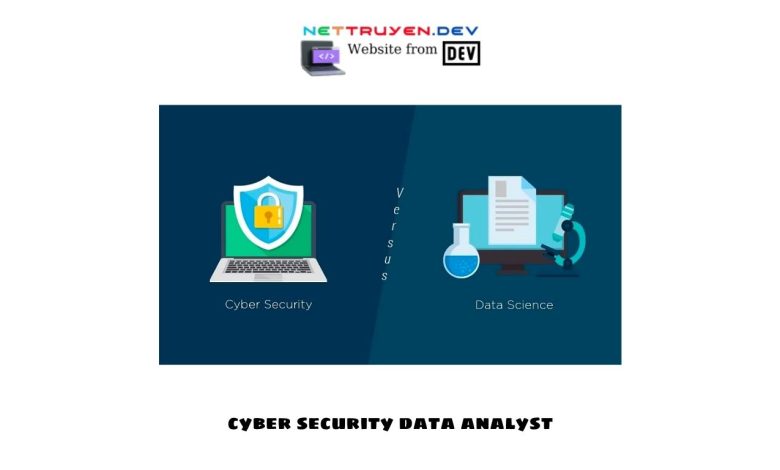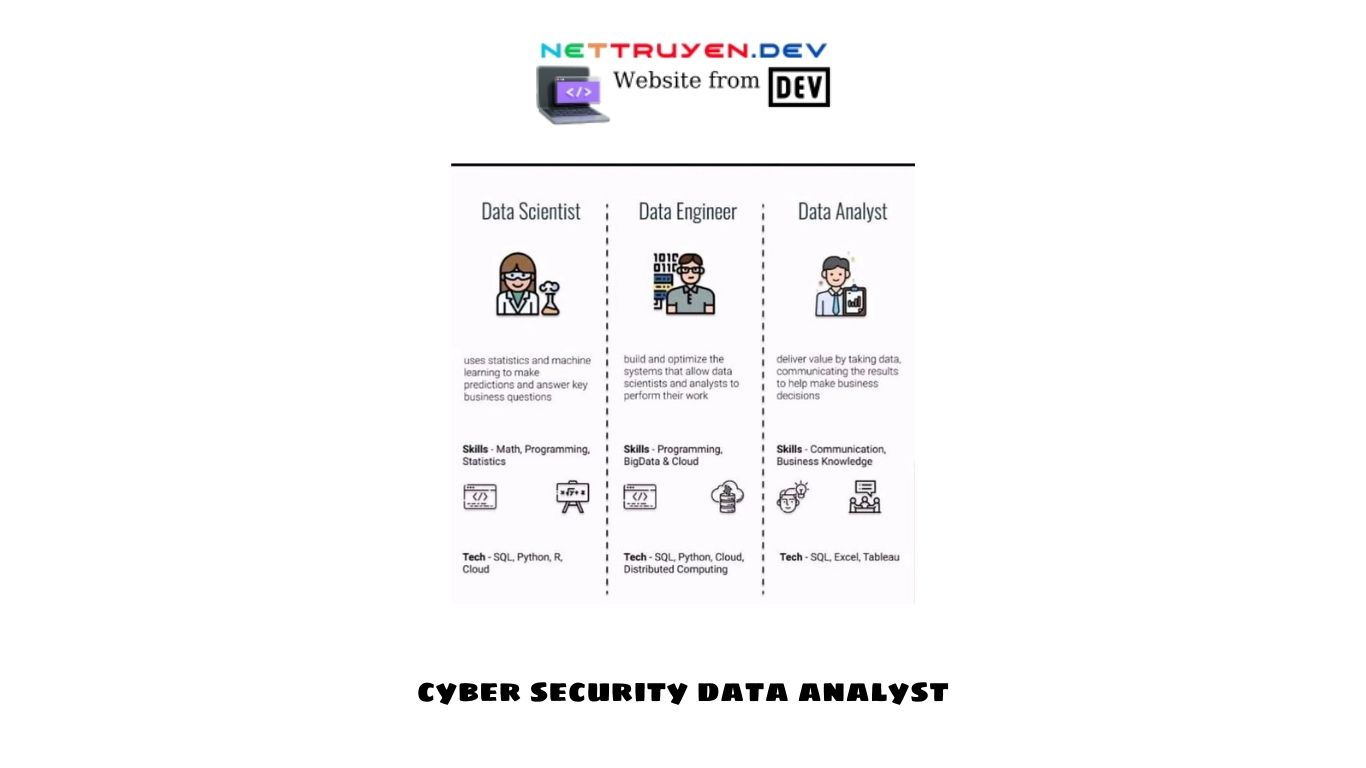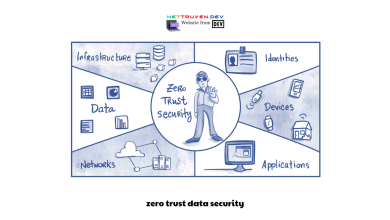
In today’s digital age, cybersecurity has become a critical concern for organizations across the globe. With the increasing number of cyber threats and data breaches, the demand for skilled professionals in the field of cybersecurity has soared. One such role that plays a vital role in protecting sensitive information is that of a Cyber Security Data Analyst. In this article, Nettruyen will delve into the world of cyber security data analysts, exploring their role, responsibilities, and the valuable contributions they make in safeguarding digital systems.
Cyber Security Data Analyst: Unveiling the Role and Responsibilities

- Understanding the Role of a Cyber Security Data Analyst
A cyber security data analyst is an expert who specializes in analyzing vast amounts of data related to security incidents, threats, and vulnerabilities. Their primary focus is to identify patterns, detect anomalies, and extract actionable insights from the data to enhance the organization’s security posture. They work closely with other cybersecurity professionals to develop data-driven strategies and make informed decisions to protect critical systems and data.
- Responsibilities of a Cyber Security Data Analyst
The responsibilities of a cyber security data analyst can vary depending on the organization and its specific needs. However, some common responsibilities include:
a) Data Collection and Analysis: Cyber security data analysts collect, process, and analyze large volumes of security-related data. This data can include logs, network traffic, system alerts, and threat intelligence feeds. They use various tools and techniques to identify trends, patterns, and potential security risks.
b) Threat Detection and Incident Response: Data analysts play a crucial role in threat detection and incident response. They monitor security systems, conduct real-time analysis of security events, and proactively identify potential threats or breaches. In the event of a security incident, they collaborate with incident response teams to investigate and mitigate the impact.
c) Developing and Implementing Security Measures: Based on their analysis, cyber security data analysts provide recommendations for implementing effective security measures. They work with security teams to develop and refine security policies, procedures, and controls to prevent future incidents.

d) Reporting and Communication: Data analysts produce regular reports and provide insights to stakeholders, including management, IT teams, and other relevant departments. They communicate complex technical information in a clear and concise manner, enabling decision-makers to understand the security landscape and make informed choices.
- Required Skills and Expertise
To excel in the role of a cyber security data analyst, several key skills and expertise are essential. These include:
a) Data Analysis: Strong analytical skills are fundamental for cyber security data analysts. They must be proficient in using data analysis tools, statistical techniques, and data visualization to extract meaningful insights from complex datasets.
b) Cybersecurity Knowledge: A solid understanding of cybersecurity principles, concepts, and industry best practices is crucial. Cyber security data analysts must be familiar with various security technologies, threat actors, attack vectors, and the latest trends in the cyber threat landscape.
c) Programming and Scripting: Proficiency in programming languages such as Python, R, or SQL is valuable for data analysts. It allows them to automate data processing tasks, develop scripts for data manipulation, and create custom analysis tools.
d) Communication and Collaboration: Effective communication skills are essential for cyber security data analysts. They must be able to translate technical findings into actionable recommendations and communicate with stakeholders from various backgrounds, including non-technical individuals.
- Contributions to Cyber security
Cyber security data analysts play a vital role in strengthening an organization’s cybersecurity defenses. Their contributions are multi-faceted and include:
a) Early Threat Detection: By analyzing security data in real-time, data analysts can identify potential threats and vulnerabilities before they are exploited. This proactive approach allows organizations to take preventative measures and mitigate risks effectively.

b) Incident Response and Forensics: When a security incident occurs, data analysts provide valuable insights into the nature and scope of the incident. Their analysis helps incident response teams understand the attack vectors, identify affected systems, and determine the extent of the breach.
c) Security Strategy Development: Data-driven insights provided by cyber security data analysts inform the development of robust security strategies. Their analysis helps organizations prioritize security investments, allocate resources effectively, and implement preventive measures to mitigate emerging threats.
d) Continuous Improvement: Data analysts contribute to the continuous improvement of security operations by monitoring and analyzing security controls, identifying areas of weakness, and recommending enhancements. This iterative approach helps organizations stay ahead of evolving threats.
Conclusion
In an era where cybersecurity threats continue to grow in complexity and frequency, the role of a cyber security data analyst has become indispensable. Their expertise in data analysis, cybersecurity knowledge, and communication skills enable organizations to detect threats, respond to incidents, and develop effective security strategies. By leveraging the power of data, these professionals contribute significantly to safeguarding digital systems, protecting sensitive information, and ensuring the resilience of organizations in the face of evolving cyber threats.
If you have a passion for data analysis and a keen interest in cybersecurity, a career as a cyber security data analyst could be a rewarding path to explore. With the increasing demand for skilled professionals in this field, the opportunities for growth and impact are vast. By continuously honing your skills, staying updated with the latest technologies and threats, you can make a significant difference in the ever-evolving landscape of cybersecurity.
Remember, the role of a cyber security data analyst is not just about crunching numbers and analyzing data. It’s about using your skills to protect organizations, individuals, and critical infrastructure from cyber threats. Embrace the challenges, stay curious, and contribute to the collective effort of building a safer digital world.
Conclusion: So above is the Cyber Security Data Analyst: Unveiling the Role and Responsibilities article. Hopefully with this article you can help you in life, always follow and read our good articles on the website: nettruyen.dev
Related Articles
-
Zero Trust Data Security: Redefining Protection in the Digital AgeFebruary 7, 2024




